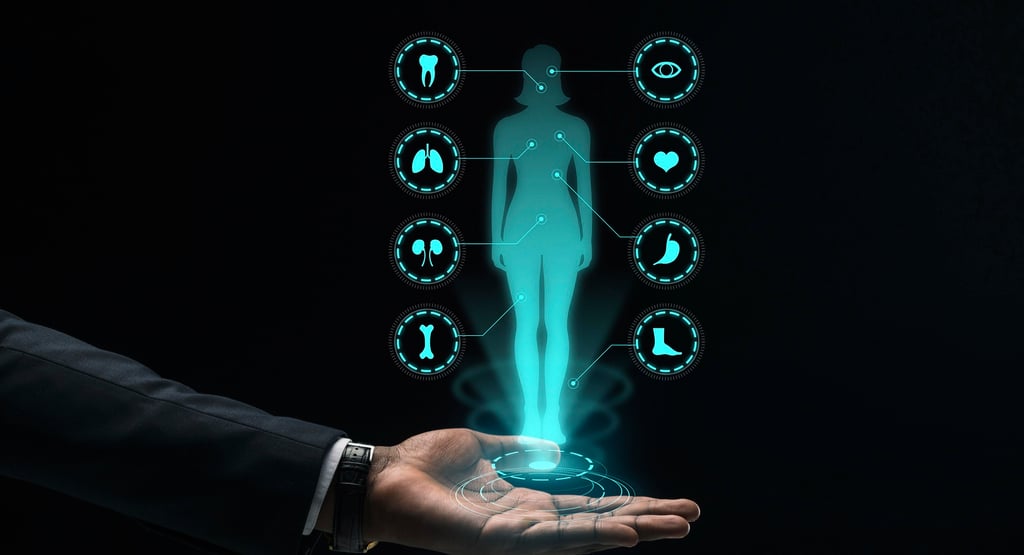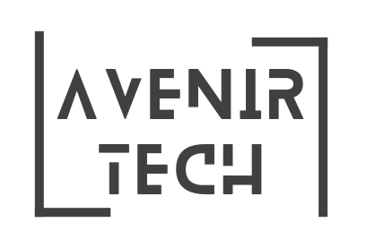AI and Healthcare: Developments to Expect in 2026
Explore the top AI and healthcare developments expected in 2026—from personalized medicine to smart diagnostics and ethical AI use. Learn how AI development is reshaping patient care with fairness, transparency, and innovation.
AVENIR TECH
7/2/20252 min read


Just as 2024 marked a surge in AI‑powered healthcare tools, the year 2026 promises deeper integration across clinical workflows, patient care, and system optimization—driven by richer data sources, smarter algorithms, and clearer regulation.
1. Personalized Medicine Enters Clinical Reality
AI‑based analysis of genetic profiles, lifestyle factors, and health records will be standard in care planning by 2026. From oncology to cardiology and immunology, adaptive treatment plans will be grounded in comprehensive multimodal insights—extending the precision that began in specialties like diabetes and mental health .
2. Smarter Diagnostics with Imaging & Beyond
AI-enhanced radiology has matured, enabling real‑time assistance during scans. By 2026, medical professionals will routinely collaborate with visual‑AI tools across X‑rays, CT, MRIs and even pathology slides—elevating early disease detection accuracy .
3. NLP Revolutionizes Clinical Documentation
Advanced natural language models now seamlessly translate doctor–patient conversations into structured records. This shift markedly reduces administrative overhead, helping practitioners reclaim time while maintaining document quality .
4. AI in Medical Coding & Revenue Accuracy
AI systems now auto-populate billing codes at point-of-care with audit-grade precision. They flag undercoding or missing documentation before billing, strengthening compliance and reducing denials.
5. Remote Monitoring with AI & IoT
Wearables and in-home sensors now feed live data to AI platforms—forecasting clinical trends, spotting early deterioration, and alerting care teams in real time. The convergence with edge computing and federated learning protects patient privacy while offering truly personalized monitoring.
6. Generative AI in Therapy & Patient Engagement
By 2026, AI-driven chatbots assist in mental health, offer lifestyle coaching, medication reminders, and post‑discharge support—with ethical oversight and clinician supervision. This expansion leverages generative models while carefully preserving human oversight .
7. Bias, Fairness & Transparent AI
With growing concerns over algorithmic bias, healthcare AI is now tightly scrutinized. Frameworks such as TRIPOD+AI and CONSORT‑AI guide transparent validation; health systems evaluate fairness before model deployment, safeguarding equitable outcomes.
8. Regulatory Clarity
After rapid expansion around 2024, regulators now require AI tools to augment—not replace—clinician decisions. Providers are clearly defined as “ultimate responsible parties,” with federal mandates to uphold safety, fairness, and privacy .
How Avenir Tech Can Help
To support transformation in 2026, Avenir Tech offers best artificial services, including interoperability-focused solutions, AI governance tools, and secure SaaS platforms that plug into EHRs. These services are built to elevate clinical utility—not to sell features.
Frequently Asked Questions
Q1: Will AI replace doctors by 2026?
A: No—AI amplifies clinician decision-making, streamlines documentation, and flags care issues, but final judgment and patient relationships remain human responsibilities.
Q2: How is patient data privacy protected?
A: Systems adhere to GDPR/HIPAA standards, implement federated learning, and enforce strict data governance to ensure confidentiality and fairness .
Q3: What oversight exists for biased AI?
A: Deployment frameworks require bias audits, diversified training datasets, and continuous performance monitoring—meeting ethical and regulatory benchmarks .
Q4: Are AI chatbots secure for mental health support?
A: Yes—today’s bots incorporate privacy safeguards and operate under clinical supervision. They offer initial triage and support, while complex cases remain clinician-led .
Q5: How can healthcare orgs adopt AI responsibly?
A: Start with structured pilot programs, define clinician roles, enforce bias monitoring, and use standards like TRIPOD+AI. Engage staff and patients throughout deployment.
Closing Thoughts
By 2026, AI isn’t a novelty—it’s a trusted ally in healthcare. With enhanced diagnostics, personalized monitoring, streamlined workflows, and ethical guardrails, AI systems are embedded in daily practice. The shift isn’t about replacing people—it’s about enhancing them. Avenir Tech remains dedicated to guiding this transformation—securely, transparently, and humanely.
© Avenir Tech 2025. All rights reserved.
Subscribe to our newsletter
Company
